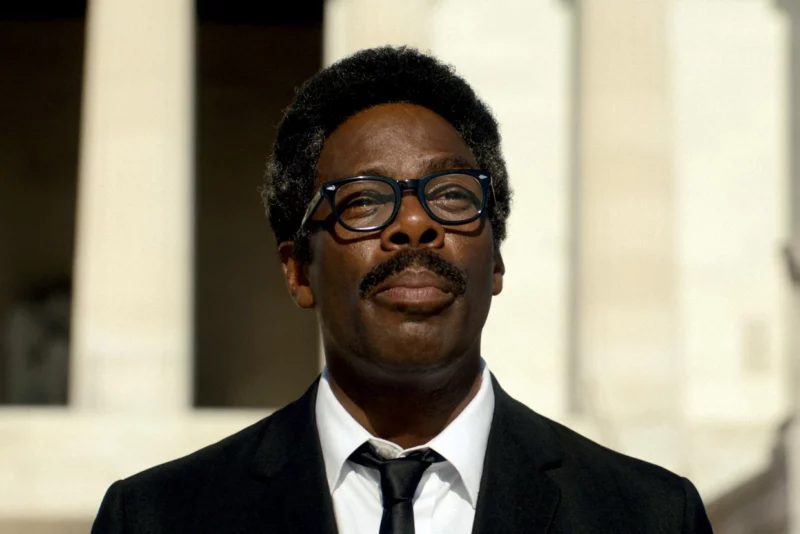‘Rustin’ shines a long overdue spotlight on the architect of the March on Washington
Share
Explore Our Galleries
Breaking News!
Today's news and culture by Black and other reporters in the Black and mainstream media.
Ways to Support ABHM?
By Max Gao, NBC

Six decades after Martin Luther King Jr. delivered his iconic “I Have a Dream” speech in front of an estimated 250,000 people on the steps of the Lincoln Memorial, a new Netflix film is shining a spotlight on one of the architects of the March on Washington who has largely been left out of the history books.
Directed by George C. Wolfe (“Ma Rainey’s Black Bottom”) and written by Julian Breece and Academy Award-winner Dustin Lance Black (“Milk”), “Rustin” revisits a crucial chapter in the life of civil rights activist Bayard Rustin (played by Colman Domingo), who is best known for being a key adviser to King and organizing the 1963 March on Washington for Jobs and Freedom. Executive produced by Michelle and Barack Obama, who posthumously awarded Rustin the Presidential Medal of Freedom in 2013, the buzzy biopic dramatizes the weeks leading up to the historic march and explores Rustin’s identity as an openly gay Black man torn between love and duty in the 1960s.
“I love the fact that, even the way the script is written, we don’t leave his sexuality out of it at all. It’s infused with every part of who he is,” Domingo told NBC News in a recent video interview. “He’s messy in many ways, even with his relationship dealings. He’s a real, flawed human being who’s trying to do something extraordinary, but he’s just an ordinary man. He’s trying to figure out the systems in which he lives and trying to move the needle a little bit on our humanity.”’
NBC has more information and the trailer.
You can also read about Rustin or see our exhibit here.









Comments Are Welcome
Note: We moderate submissions in order to create a space for meaningful dialogue, a space where museum visitors – adults and youth –– can exchange informed, thoughtful, and relevant comments that add value to our exhibits.
Racial slurs, personal attacks, obscenity, profanity, and SHOUTING do not meet the above standard. Such comments are posted in the exhibit Hateful Speech. Commercial promotions, impersonations, and incoherent comments likewise fail to meet our goals, so will not be posted. Submissions longer than 120 words will be shortened.
See our full Comments Policy here.